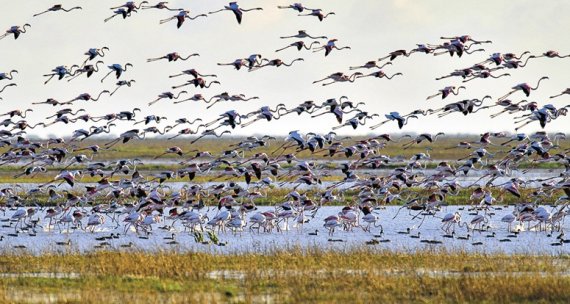Scheffer and an international team of ecologists have already studied the examples of the Great Barrier Reef, the Amazon rain forest and the Donana Wetlands in Spain. Climate change threatens the survival of these important nature areas. But that is not the only threat to them. Local activities such as pollution, overfishing and tree-felling make the situation worse. That local stress is far easier to tackle. Scheffer: ‘Using local measures it is quite possible to improve an ecosystem’s resilience so that it copes with climate change better. By reducing the local pressure on it, an ecosystem gets a chance to breathe.’
Take the Donana Wetlands, Europe’s main overwintering place for water birds. Waste water and artificial fertilizer are affecting the water quality, giving poisonous algae a chance to grow. The warming up of the climate stimulates the growth of these algae. If you reduce pollution, the toxic algae have less chance to flourish, even if warming continues. So the trick, according the Scheffer, is to take steps to minimize the impact of local activities before the system reaches a tipping point and collapses. ‘We have the knowledge. There is no excuse for countries to let this opportunity pass them by.’

